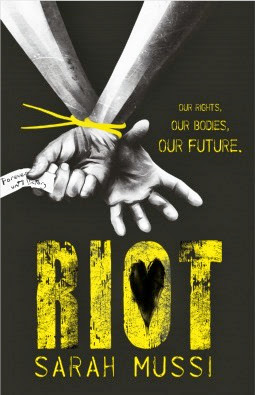 A few years back, protest came to the attention of the world consciousness in a brand new way. A loosely organized group of individuals, some self-identifying with Guy Fawkes masks, dedicated their time to disrupting the social order, in order to reveal the truths of it, and came to international attention under the name “Anonymous.”
A few years back, protest came to the attention of the world consciousness in a brand new way. A loosely organized group of individuals, some self-identifying with Guy Fawkes masks, dedicated their time to disrupting the social order, in order to reveal the truths of it, and came to international attention under the name “Anonymous.”
Most young people believe in speaking out for their beliefs – but the consequences of activism – or hacktivism, white hat or no, – can be incompletely understood. Many young hacktavists aspired to groups like Anonymous, but failed to appreciate and protect their anonymity online. Do young people truly understand the issues over which they take to the streets? Is protest the answer? In the tradition of Cory Doctorow’s LITTLE BROTHER and Saci Lloyd’s MOMENTUM, RIOT, with a provocative one-word title and an attractive cover, attempts to explore and explain the bundle of ideas, contradictions, and responses behind direct-action activism.
“Tor [sic] is an Onion Router and I’ve already downloaded its browser bundle. Like an onion, it has layer after layer of encryption. It bounces me around a global network of relays, hosted by sympathisers, well-wishers, those who lend their services to protect identity, location, today’s date. Suddenly I am anonymous.”
Concerning Character: Tia Thompson has a bright future – on paper. Her father is a Minister of State, her mother is a doctor, and she’s been sent off to boarding school, well-educated, and by all accounts, is not the next in line for the British government’s austerity measures, which include forced sterilization for school-leavers who have no immediate job prospects or influential sponsors. That’s ridiculously unfair, Tia thinks. It’s not her friend Lacey’s fault that there’s unemployment and inflation and overpopulation. But, Lacey is being raised by a single mother on assistance, and if all she has waiting for her is enforced sterilization – no word on Lacey’s school options or job prospects – well, someone should change that, Tia decides.
As they take part in the protest, “Act your rage!” Tia reminds Lacey, who is bewildered. Lacey isn’t raging. She’s concerned – worried – thinks the sterilization is unjust, but the rage and the reaction isn’t Lacey’s… and, it Tia’s, either. Tia is tired of writing thank-you notes, is missing her mother, angry with her father, and ultimately, educated, entitled, and bored… Bored enough to lead a double-life. Bored enough to explore the anonymous underground internet, Darknet, to sign onto a Tor browser to anonymize her movements through the internet. Bored enough to set herself up as EVE and glom onto Che Guevera’s revolutionary phraseology, “¡Hasta la victoria siempre!” and, despite having no real knowledge of what resistance to the government means, to fly the revolutionary flag with relish.
People who jump from windows and know nothing about gravity usually come to a bad end – and the reader knows instinctively that Tia is a naive little poseur who is headed for trouble. Everyone tells her – her best friend, Lacey, her savior, the über-brilliant Cobain Reilley, who’s too good to be true, and almost never sets a foot wrong – and her father, when he finally catches up to her. From all sides, the message comes that Tia is wrong, but she doesn’t hear. Ultimately, the novel shows, when all is stripped away, how terrified and intimidated the protesters are, how frail their bodies, when confronted with gas, tanks, and bullets. Away from the camouflage of the internet, things in Tia’s world are different.
 While readers might sense that this novel has a Message, it’s a hard one to fathom. Tia – as EVE, the “mother” of this new world – is all slogans and cant, interspersed with the word “flippin’,” which makes her sound naive and shallow, as opposed to the masterminding hactivist she’s supposed to be. Unlike in Cory Doctorow’s novel, Tia has no real information, nor any true vocation and calling to this cause. She’s like the girl who wears the Che Guevera T-shirt and paratrooper boots but knows nothing about the history behind either item, only their fashion cachet. Though she sets up flash mobs and actions against the government through her anonymized site, Tia lacks the essential paranoia hackers possess. (Additionally, actual hacktivists don’t trust TOR – The Onion Router – knowing that it started its life as a U.S. Naval Intelligence bundled software …) Over the course of the novel, Tia repeatedly shows shock that people will go so far to support an ideal. When the tanks begin rolling, she is gobsmacked, when the guns fire live ordinance, she is shocked. That continual shock gets old – even as blood is shed, Tia can’t seem to understand that she’s in the real world.
While readers might sense that this novel has a Message, it’s a hard one to fathom. Tia – as EVE, the “mother” of this new world – is all slogans and cant, interspersed with the word “flippin’,” which makes her sound naive and shallow, as opposed to the masterminding hactivist she’s supposed to be. Unlike in Cory Doctorow’s novel, Tia has no real information, nor any true vocation and calling to this cause. She’s like the girl who wears the Che Guevera T-shirt and paratrooper boots but knows nothing about the history behind either item, only their fashion cachet. Though she sets up flash mobs and actions against the government through her anonymized site, Tia lacks the essential paranoia hackers possess. (Additionally, actual hacktivists don’t trust TOR – The Onion Router – knowing that it started its life as a U.S. Naval Intelligence bundled software …) Over the course of the novel, Tia repeatedly shows shock that people will go so far to support an ideal. When the tanks begin rolling, she is gobsmacked, when the guns fire live ordinance, she is shocked. That continual shock gets old – even as blood is shed, Tia can’t seem to understand that she’s in the real world.
Tia blindly trusts that her father will not “sink” that low, will not go “that far,” and gets nearly everyone she cares about – for a given value of caring, in that she doesn’t even stop and weep over the death of a friend – violently and abruptly killed. Despite being repeatedly warned by a seemingly all-knowing Cobain, somehow – she still trusts all the wrong people. The author seems to have characterized her as someone merely who doesn’t want to be told what to do, and goes off in a blind fit that embroils an entire nation because of it. This is disingenuous and disrespectful of people who embrace protest as a means of response to their governments, knowing that they can face gas and rubber bullets and misunderstanding.
Because Tia’s point of view is fairly narrow, readers encounter a marked lack of dissent in the novel, other than from young adults. The government seems to move unopposed, with the House of Lords and the House of Commons as eerily congenial as the Prime Minister could ever dream. The lack of adult women’s resistance in this novel is telling – adult women would surely object to the idea of enforced sterilization, and interestingly, the initial news report on the government’s intention to intervene in the “overpopulation problem” come from a woman. Tia’s issues with her father and the predominantly male lawmakers in her government are a little disingenuous as well, in that she never seems to at all resent her mother’s inability to protect her from her father, to stand up to her, or to do anything but wring her hands and be all the way in India. (It is also disturbingly convenient that Tia’s mother is hooked up with someone else at the close of the novel, and the fate of Tia’s father seems to be of no concern to anyone.)
Initially, the riots in this novel are supposed to be about the forced sterilizations and the right to bear children — and yet, there’s a lack of children represented, with the exception of one infant who is never seen alive. Aside from a surreal view of a sterilization surgery, and a few wistful moments in which Tia thinks of the babies she could have with Cobain, this seems a dream of dubious attractiveness, even given Tia and Corbain’s uneven, insta-love relationship, and the fact that they’re both running for their lives. There’s no connection for the reader as to what’s at stake, and what is being lost, with the idea of forced sterilization, and what would be missing from British society if only the upper classes reproduced. There are some opportunities missed to explore the issue in terms of some of the rich ethnicity and cultures of Britain.
Using the character of Tia – a poseur who gets caught up in something bigger than she could have imagined – the novelist attempts to deconstruct complex social questions. While the author may have, with all good intentions, intended to speak to the issue of conflict with power, protest, and young people’s voices, for many readers, this novel may fall short. Instead of highlighting the concerns that British young people justifiably have regarding the sometimes unduly exerted power wielded by their government, it instead trivializes both true protest and the concerns of young people everywhere about political issues – which is a real shame.
After May 1, you can find RIOT by Sarah Mussi online, or at an independent bookstore near you!